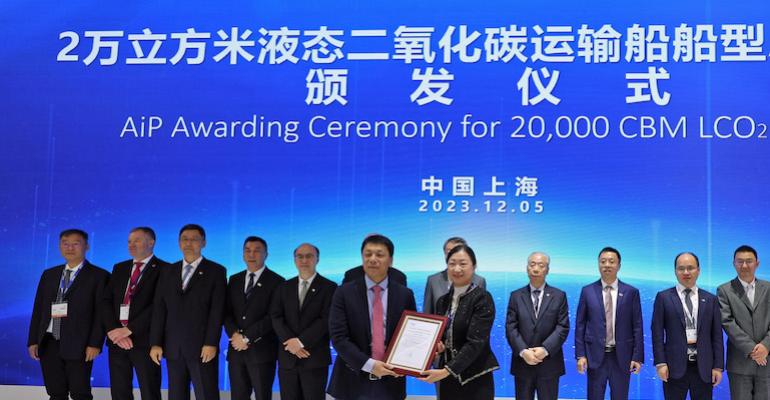The AiPs are for a 50,000 cu metre floating liquefied CO2 (LCO2) storage and injection unit (FSIU) and a 20,000 cu metre LCO2 carrier and were awarded by DNV to DISC at Marintec China in Shanghai.
The AiPs confirm the general feasibility of the conceptual designs as reviewed by DNV. They follow earlier projects by the shipyard, such as the design development of the world’s first 7,500 cu metre LCO2 tanker currently under construction to DNV class, as DSIC positions itself as a leading builder in the emerging maritime LCO2 supply chain.
“We are delighted to award AiPs to DSIC for their innovative designs, poised to propel the global CCS value chain with shipping as its focal point. Throughout the comprehensive review process, DNV has leveraged its worldwide expertise and resources in liquefied CO2 transportation, as well as carbon capture, utilisation, and storage. We eagerly anticipate continuing our steadfast support for DSIC in bringing these designs to the market,” stated Norbert Kray, Regional Manager Greater China at DNV Maritime.
Carbon capture and storage (CCS) is widely regarded as an important element of the energy transition, which will play a major role in decarbonising hard-to-abate sectors.
While the deployment of CCS technology is still in its early stages, with only around 40 million tonnes of CO2 currently captured annually, a large number of LCO2 transport vessels, storage and injection units are likely to be required in the future to scale up the sector.
Copyright © 2024. All rights reserved. Seatrade, a trading name of Informa Markets (UK) Limited.
Add Seatrade Maritime News to your Google News feed.  |

